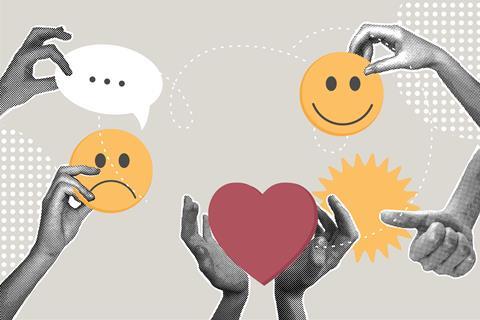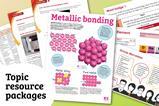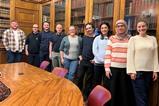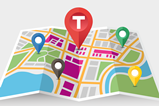We have launched our new literacy resources and want to know what you think

Since I arrived at the RSC in the middle of the first Covid-19 lockdown, I have been hearing from teachers that literacy skills is a key challenge. The results of our second Science Teaching Survey in 2023 revealed the statistics. 50% of all survey participants shared literacy skills was a challenge, rising to 75% of teachers in schools with 30% or more pupils eligible for free school meals.
EiC had already provided ideas and some great examples of resources to support literacy but there were only a few of them. In an early conversation with my colleague Kirsty Patterson, she showed me the Unscrambling definitions resource saying, ‘this is brilliant, but why is there only one?’ We knew we wanted to be able to offer you good, ready-to-use resources for a wide range of topics, but what would we include?
Since I arrived at the RSC in the middle of the first Covid-19 lockdown, I have been hearing from teachers that literacy skills is a key challenge. The results of our second Science Teaching Survey in 2023 revealed the statistics (rsc.li/3F8xp9i). 50% of all survey participants shared literacy skills was a challenge, rising to 75% of teachers in schools with 30% or more pupils eligible for free school meals.
EiC had already provided ideas and some great examples of resources to support literacy but there were only a few of them. In an early conversation with my colleague Kirsty Patterson, she showed me the Unscrambling definitions resource saying, ‘this is brilliant, but why is there only one?’ (rsc.li/43t2vpj). We knew we wanted to be able to offer you good, ready-to-use resources for a wide range of topics, but what would we include?
All the thought, discussion and care … by authors, quality assurance reviewers, focus groups and our own editors feels very worthwhile
Starting with a carefully selected list of key terms by topic was one of the most challenging parts of the process. Along with that we developed an accompanying accessible glossary, Frayer model templates for selected terms and unscrambling definitions now rounds off the key terms support packs. We have brought this language support together with a reading comprehension, a structured talk activity and a selection of structure strips for each subtopic to support writing for each topic based on feedback from teachers.
You’ll find the first of these literacy support packages, with more to follow in June, alongside EiC articles full of ideas you can apply in your classroom. And all the thought, discussion and care poured into selecting terms, creating accessible, accurate definitions and developing the other resources by teacher authors, quality assurance reviewers, focus groups and our own editors feels very worthwhile. I know there will be comments, corrections, even complaints about the key terms lists we’ve come up with. But we are delighted to be sharing what we have so far.
Science literacy support
Discover our latest resources by key topic. Each set includes:
- reading comprehension
- structured talk activity
- structure strips to support independent writing
- key term support pack, with definitions, accessible glossary, Frayer models and unscrambling definitions.
Find them along with our carefully curated collection of articles and classroom-ready activities to help you embed literacy into your existing lessons.
In each package you get a lot of materials and we know you won’t have time to use them all. But when you need to provide additional language support, or there is some space to build literacy skills while consolidating understanding into your science lessons, you will be able to find a resource to fit the topic.
Discover them, love them, hate them, change them – yes, they are all editable. But most of all, tell us what you think by emailing education@rsc.org.
Juliet Kennard is programme manager for educational resources at the Royal Society of Chemistry
View the literacy support resources on the RSC Education website and download them today: rsc.li/3S63W2K














No comments yet